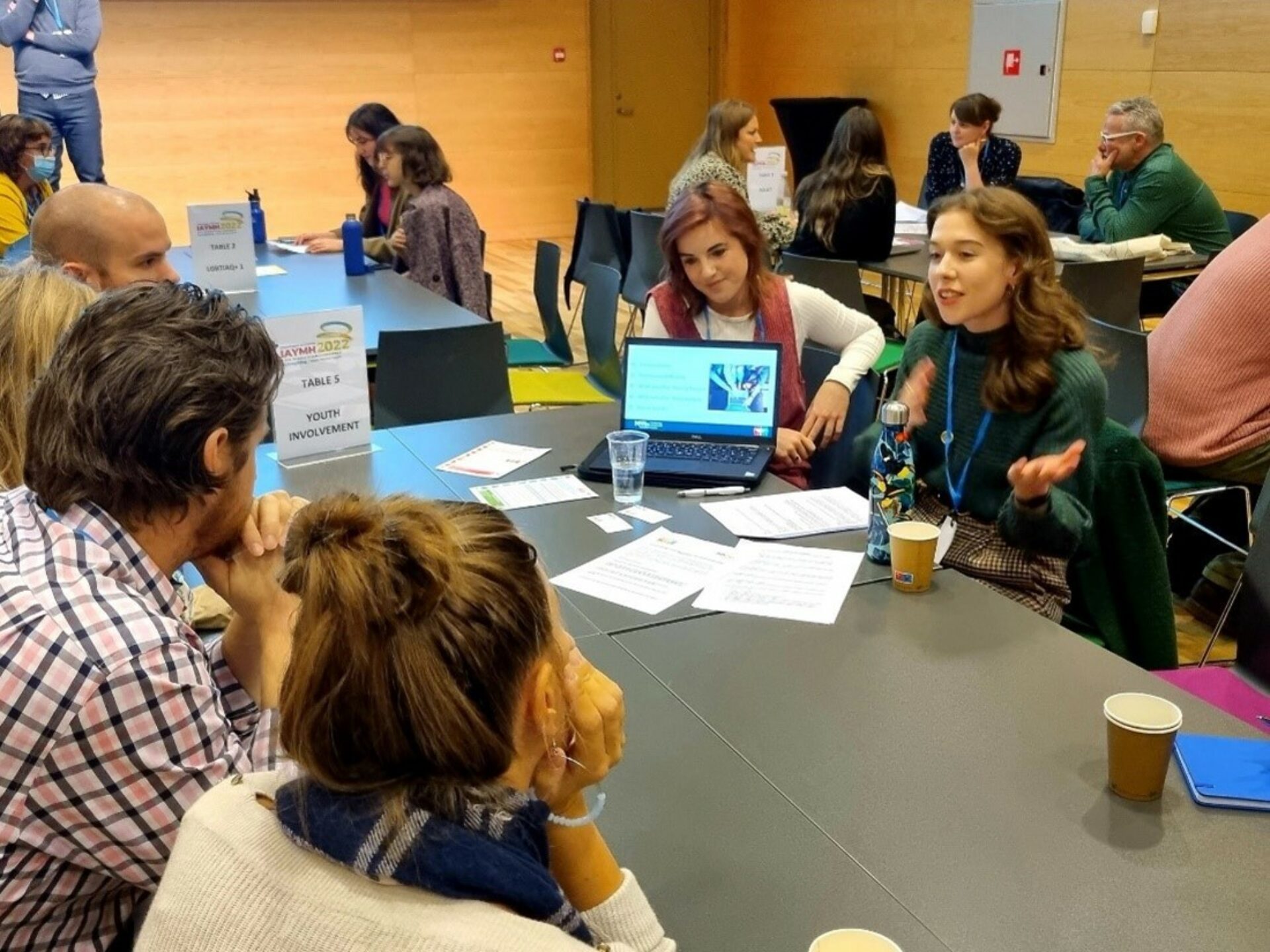Members of the McPin Young people’s Involvement team recently attended the International Association for Youth Mental Health (IAYMH) conference in Copenhagen.
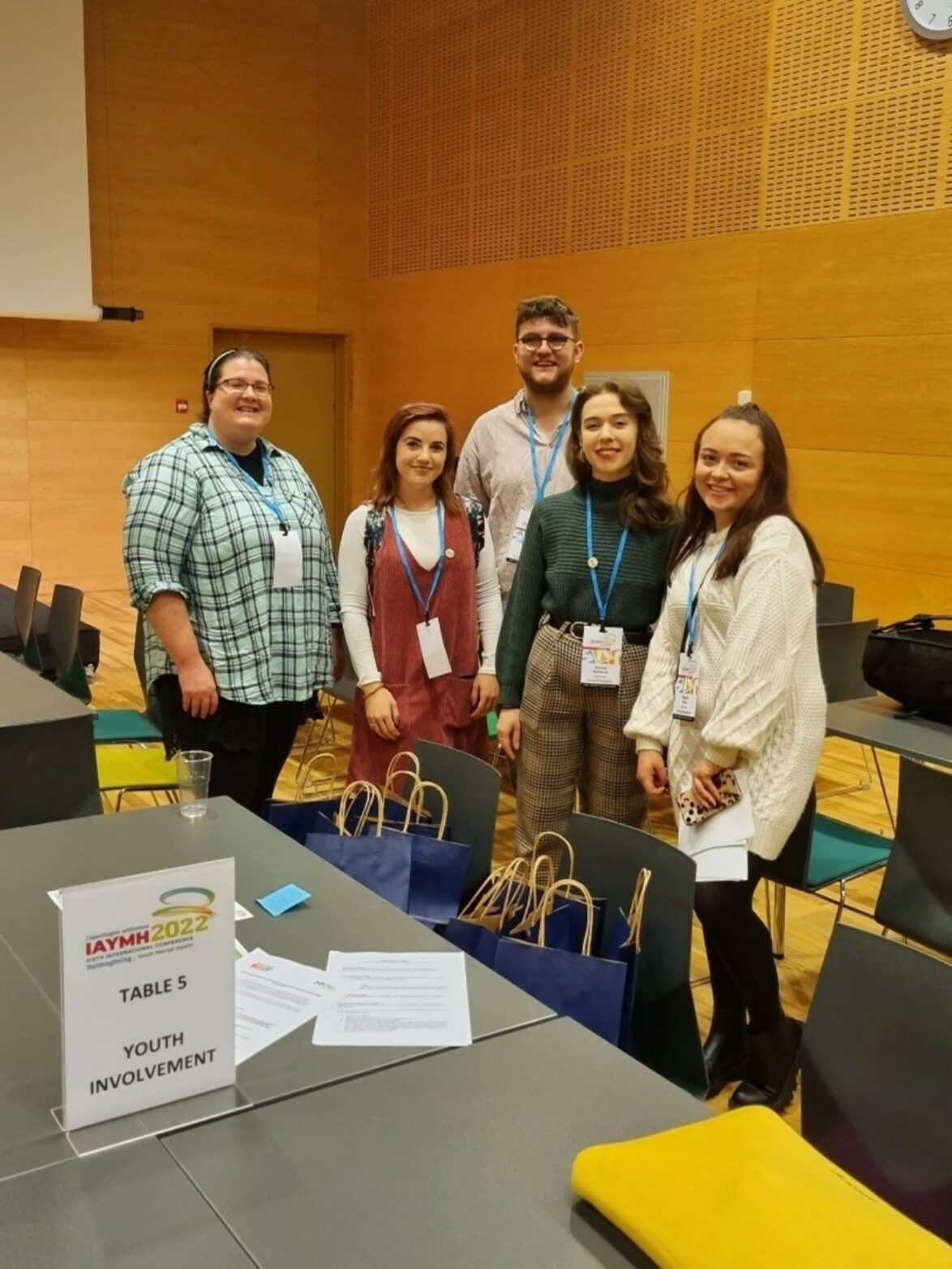
IAMYH brings together people who care about and work in youth mental health (young people, professionals, researchers, organisations and policy-makers) to try and make real change.
Packed with content, the conference was spread across three days. Youth organisations from all across the globe came along to share their exciting work that they do for and with young people.
Across the three days, we presented about our youth involvement programme, our co-researcher work on the Blueprint project, and our involvement in the Bridging the Gap project.
Our team is formed of young adults. For many of them, this was their first conference – not to mention international!
We were also joined by our friends from The University of Birmingham, Institute of Mental Health (UoB IMH) and their very own Youth Advisory Group (YAG), who presented their co-produced guide for young people approaching their GP about self-harm.
Fantastic official start to @iaymh #IAYMH2022 in #Copenhagen City Hall last night! pic.twitter.com/31kIXyiqQz
— Annie Walsh (@awalsh9890) September 30, 2022
Below, our team share their experiences and take-home messages from the trip, including future recommendations:
Georgia, Trainee Peer Researcher & Young Person Co-Researcher
The IAYMH conference, was the first conference I’d ever attended, so it was a pretty daunting prospect, as the unknown usually is!
Pondering over simple questions and thoughts, that any regular mental health conference goer probably wouldn’t even think about: how big will the venue be? How many people will be there? What will the people be like? Will everyone else know each other? What even is a conference?
I imagined the conference to be filled with stereotypical clever looking professor-types from across the globe, with years of experience in the field, glasses and smart suits and multiple university degrees, talking about things that I could never understand. I was certain I’d be one of the odd ones out.
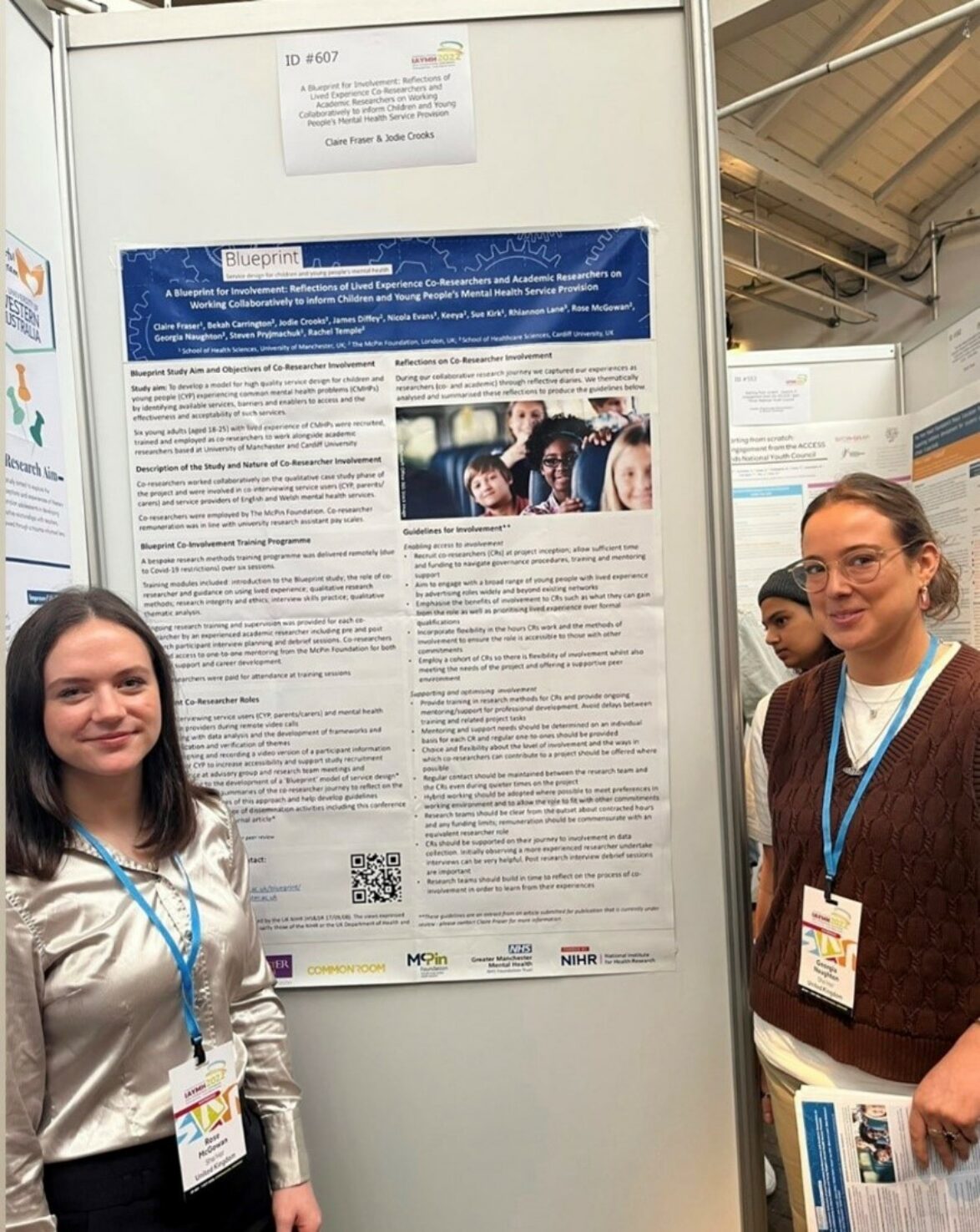
However, I was pleasantly surprised to find that there were actually quite a lot of people just like me, many friendly faces, many like-minded people (and only a few intimidating looking professor types!).
One thing I did notice about the people who attended and presented at the conference, was the lack of young people/youth representation. This was definitely surprising – this was a youth conference after all.
Of course, I understand that flying to another country, or even continent in some cases, can be difficult for a young person to do, due to variety of factors. But a larger youth representation would have benefitted the conference a great deal in my opinion.
When talking about youth mental health, it is their opinions and thoughts which are the most important and can really stimulate change in the current systems.
After all, one of main themes that many of us brought away from the conference is the importance of youth-led work and letting them make the decisions and share their vital opinions and experiences.
I was attending the conference on behalf of two projects, both of which I worked on as a co-researcher.
This meant I was doing two presentations at the conference, a tabletop presentation and a poster presentation, and for someone who isn’t very keen on speaking in front of more than two people, this only added to my apprehensiveness.
Nevertheless, I knew it would be great experience to present in this kind of context and thought maybe it won’t be as bad as my brain was telling me.
Thankfully I was right, and presenting for both projects was actually a really rewarding experience. It was great seeing people from around the world asking questions and making notes on how the project involved me and others as co-researchers with genuine interest and curiosity.
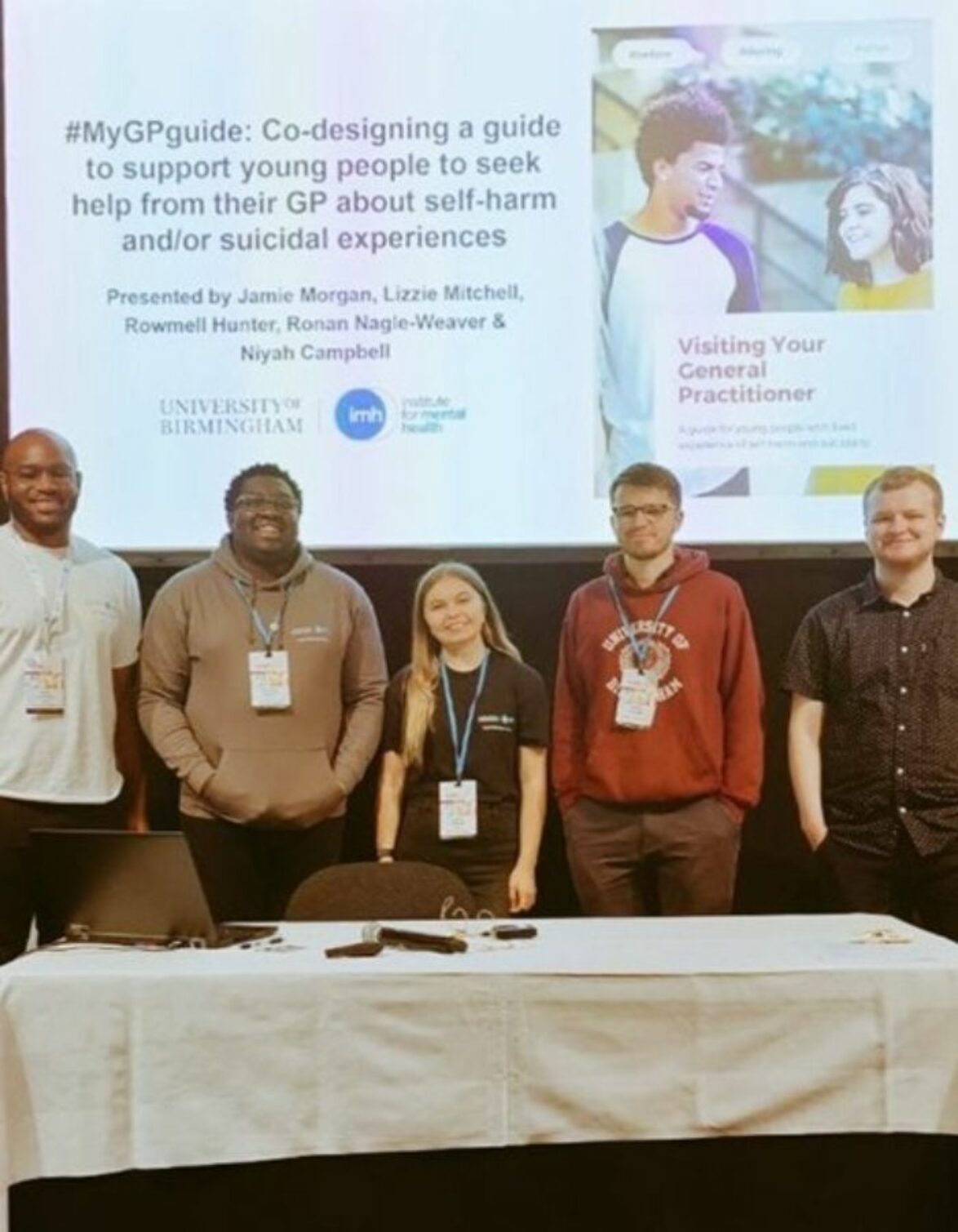
Emma, Youth Public Involvement in Research Officer
For me, the real highlight of the conference was presenting the McPin Young People’s Involvement Programme with Rachel at the Table-Top presentations!
Along with two other organisations, who were from Canada and Australia, we all sat around the ‘Youth Involvement’ table and, over the space of just under two hours, took it in turns to each present to an audience that rotated every 30 minutes.
Once the nerves and jitters subsided (a little!) it was brilliant being able to share and showcase all the fantastic work and models that make up the McPin Young People’s Involvement Programme, Young People’s Advisory Groups (YPAGs), our co-researcher model and our Young People’s Network (YPN), as well as to receive questions, curiosity and praise about our work from other international organisations.
Partaking in the Table-Top presentations not only gave us the chance to showcase our work but to also hear about the work of other youth involvement organisations and engage in conversation and discussion about all things youth involvement.
Some great discussion points from the presentations that got my brain whirring were:
- What does meaningful involvement for young people look like and involve?
- Should payment rates change per country?
- Can reimbursement include more than money (e.g. training, qualifications)?
- Do larger groups of young people/young advisors equate to better representation and involvement?
- What efforts need to be made by organisations to reach out and involve young people’s voices that are often missed or unheard in research?
Big questions I know! However, the common answer that came up in these discussions and running theme throughout was: if in doubt, take it to young people.
Ensuring that decision-making and work is youth-led is the first step in the right direction to youth involvement done right.
Not only did I come away that day invigorated and motivated by other people’s and organisations commitment and passion towards youth involvement in mental health research, it also reaffirmed for me that involving people directly affected by mental health problems greatly improves research which is the foundation we start from in all the work that we do!
Annie, Senior Public Involvement in Research Facilitator for the collaboration with UoB IMH
I was lucky enough to attend an extra day of the conference, involving a series of full-day workshops on everything youth mental health, from measurements and treatments to youth engagement and involvement, advocacy and policy.
I took part in “Leading the way: Best practices for youth engagement in a global movement for youth mental health”.
The aims for the day were to discuss trends and gaps in youth engagement practices, share our knowledge and diverse perspectives, and develop best practice guiding principles together; very similar to those of our own collaboration with UoB IMH and their YAG – “Centring Young People in Mental Health Research”.
The group facilitation method used was fantastic and something I had never experienced before – the Rapid Consensus methodology following the 4 Seasons Clock.
We were guided to rapidly reach consensus by openly discussing and understanding:
1. The current issues and barriers for youth engagement
2. If these were removed, our ideal youth engagement scenario
3. Options to reach this scenario and
4. Which of these options we can focus on and act upon now.
However, at points, I did feel slightly like an imposter in discussing how we can improve youth engagement when we should just ask the young people themselves. There were only 2-3 young people present in this particular workshop.
I applaud the young person who stood up to say exactly that, as well as the onus not being put entirely on them, but for professionals to also be good advocates for and raise up the voices of young people.
Indeed, the highlight talks of the conference were those led by young people. The talk from Te Manaia Jennings was extremely inspirational (not a dry eye on our row of seats).
The UoB IMH YAG presenting on #MyGPGuide, including the creative spoken word section was excellent.
Overall, the IAYMH conference is very much a step forward for youth involvement and engagement in mental health research, being unlike traditional research conferences in that it is planned and delivered in partnership with young people, and offers bursaries for young people to attend.
However, there were clearly still barriers with sadly fewer youth voices than I expected. It would be good to think carefully about the location of the next conference, as well as encouraging submission of talks to be presented alongside the young people who shaped the research.
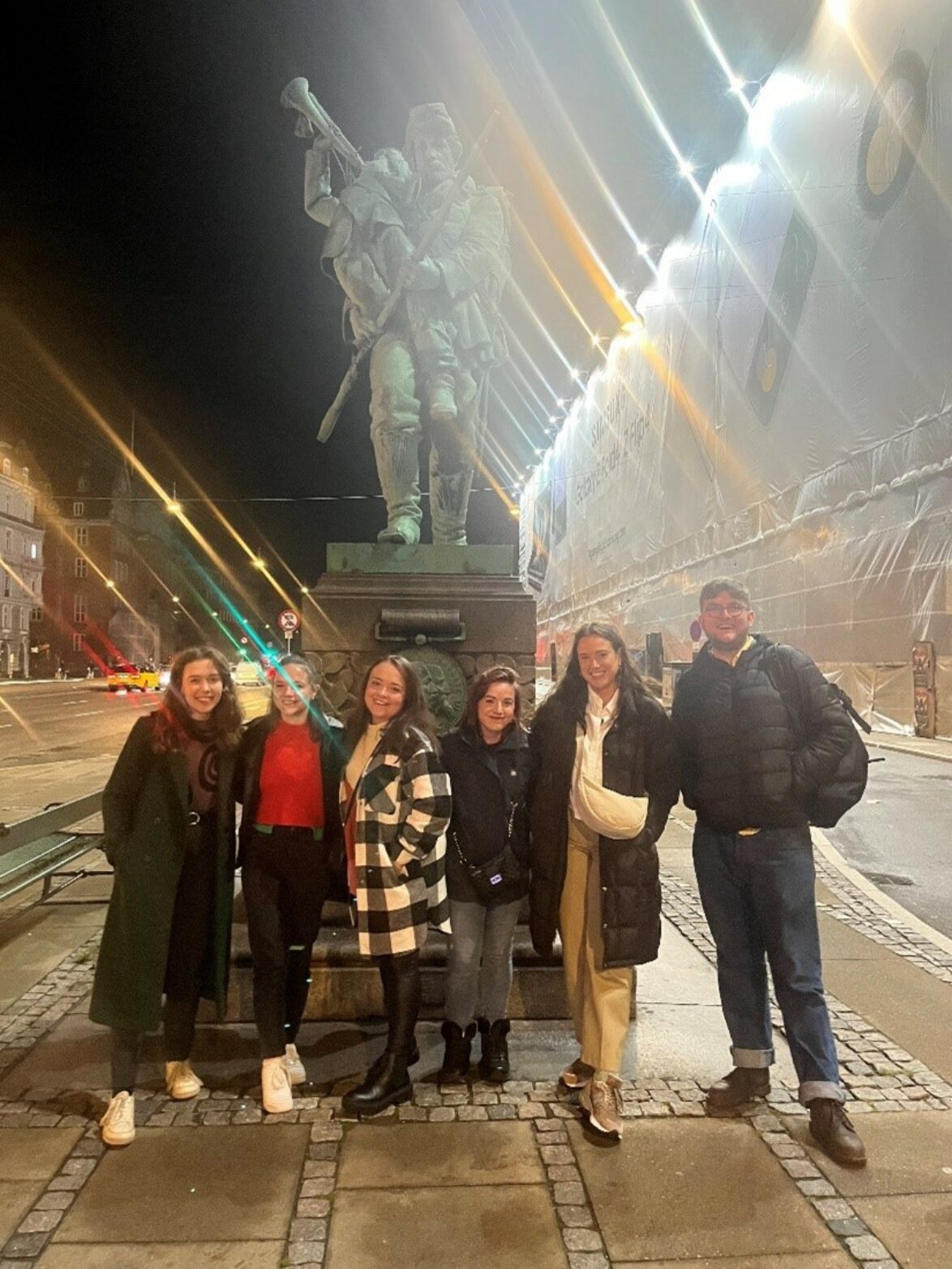
Rachel, Public (Youth-focused) Involvement in Research Manager
I was blown away to have met so many like-minded people at the conference. At the end of the day, we all share the same mission: maximise the mental health of young people.
For McPin, we aim to put young people at the heart of that process, involving them in all aspects of our work, and in Copenhagen, I met some fantastic organisations doing the same thing. Frayme, Orygen and Jigsaw are just three examples of who I spoke with, each incredibly passionate about youth involvement.
Frayme have their own involvement network of lived experience youth advisors from Canada. The young advisors can be contacted directly by researchers to partner on their projects. I was struck by the similarities between this and our McPin Young People’s Network.
For me, this was the real take-home message. There are many of us out there doing similar stuff. Imagine what we could do if we more regularly joined forces across the globe: sharing learning, exchanging ideas and taking a unified approach to involvement?
We’ve already started exploring collaborations with other involvement experts. Our partnership with IMH and their fabulous YAG is just one example.
In the next few months, we hope to take this a step further. We’ll continue to promote best practice in youth involvement, reflecting on our own methods and learning from the other brilliant teams out there.
We’ll follow-up on conversations from Copenhagen, compare notes with international teams, continue to grow and evolve the Young People’s Network. Above all, young people themselves need to be at the very centre of these conversations.
The team have reflected on some barriers to youth involvement experienced at this conference. We are actively trying to tackle these barriers in our own practices, by demonstrating how involvement can be more meaningful and inclusive.
Our own Young People’s Advisory Group (YPAG) YPAG is already on board, having helped us write up our latest youth involvement resource on how to run a meeting with young people.
Ultimately, we all want more, high quality youth involvement in mental health research. This is best achieved by working together.
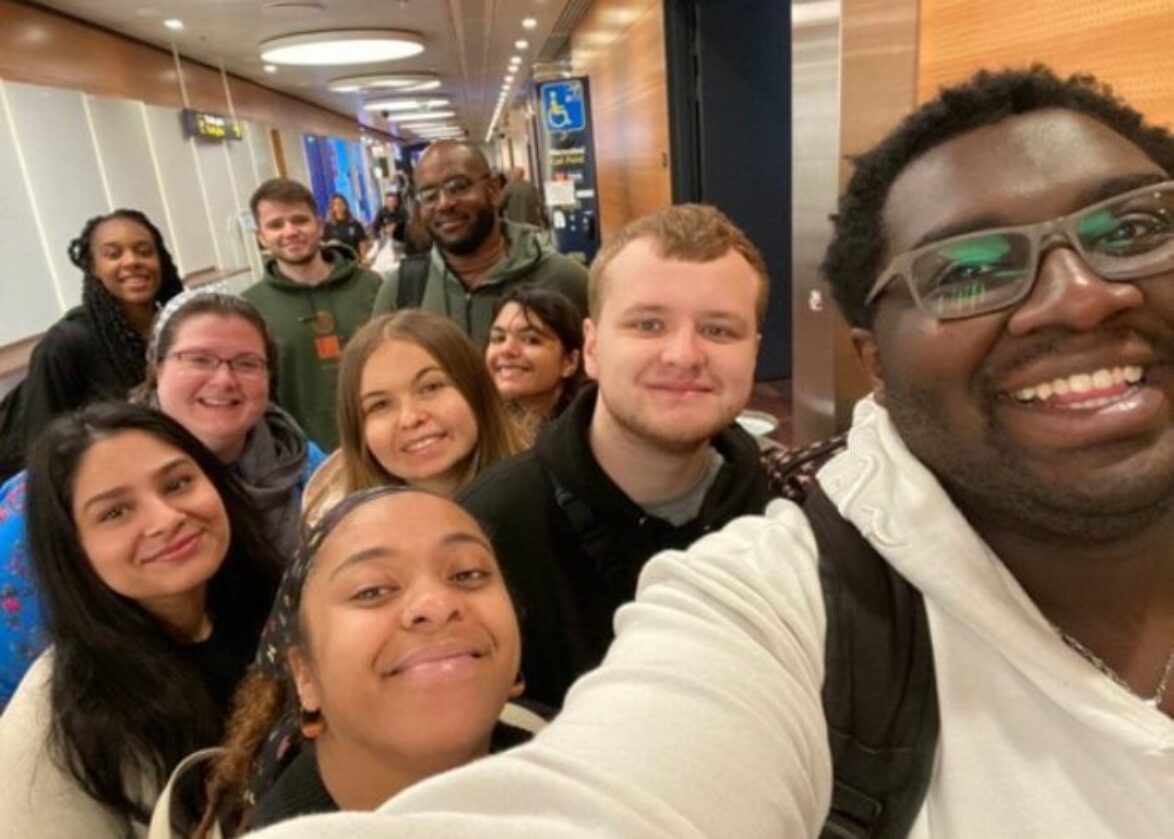
Jamie, YPAG member
It was a great experience attending the conference in Copenhagen. Walking past packed rooms, busy information stands, poster presentations, and the auditorium space, it was strange to think all these people were here to talk about mental health – something that can feel so wrapped up in silence and shame.
At the conference, I learned quite a few new things, picked up quite a bit of free merch, and met all kinds of interesting people. I saw some impressive talks from researchers and academics who had developed sophisticated methods to capture all kinds of data.
But the thing I think I found myself most impressed by was my colleagues – or whatever it is you would call the fellow young people and staff from McPin and Birmingham University.
I felt proud to see them lead discussions and present talks. It made me reflect on the value of their approach and the values they bring into their work – putting lived experience at the centre of research. It made me excited to see what else they would do next, what else I would join them in doing.
Niamh, YPAG member
After two years of virtual meetings, it was very strange to attend my first ever conference, let alone an international conference, in person. What made it even stranger was meeting fellow YPAG members for the first time, and then spending three whole days together.
Whilst this was an extremely daunting prospect, what a wholesome and wonderful experience it turned out to be.
From the moment me and the other young people team members met at 5am in Gatwick Airport, it was apparent to me that we all shared the same values and consequently, there was nobody else I would rather attend a mental health conference with.
Our time extended past the conference into the evenings where we had so much fun exploring the brilliant city of Copenhagen and ate very delicious foods! Making new friends and spending time with like-minded people was a real unexpected reward that I took from this trip.
During the conference, I listened to presentations from international teams on their projects, observed how they are working tirelessly to reduce mental health stigmas.
I was amazed to discover that we all shared something. No matter which country they were from or how old fellow attendees were, they all want to improve young peoples’ mental health, by working with young people.
I heard about advisory groups around the world, just like the YPAG I am a part of, where they listen and collaborate with young people to help carry out and steer research in the most beneficial and effective ways. It was just amazing to be in a room with so many like-minded people and I am so grateful to have been given this opportunity.
For me, this once in a lifetime experience highlighted two things:
The first being that internationally, most people are singing from the same songbook: we all want to improve youth mental health.
The second was the importance of saying yes more and to not allow my worries and fears to prevent me from undertaking opportunities that will add so much to my life, in so many ways.
Head over to the Young People’s Network to find out more about their work and sign up to receive opportunities into your inbox
